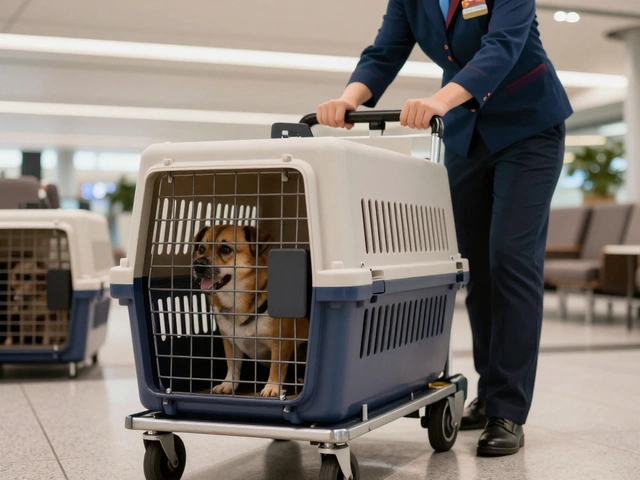Puppy Vaccines: What Every New Owner Should Know
Getting a puppy is exciting, but the first few weeks can feel like a medical maze. The good news? You only need a handful of shots to protect your furry friend from the most common diseases. Below is a no‑fluff rundown of the core vaccines, the timing, and what to expect at the vet.
Core vaccines and why they matter
Veterinarians agree on four core vaccines for all puppies, regardless of breed or lifestyle. These are:
- DHPP – protects against Distemper, Hepatitis, Parvovirus, and Parainfluenza.
- Rabies – required by law in most states and prevents a fatal virus.
- Leptospirosis (often combined with DHPP) – guards against a bacterial infection spread by standing water.
- Bordetella – especially important if your pup will socialize at parks or boarding facilities.
Skipping any of these leaves your puppy vulnerable to illnesses that can be deadly or costly to treat.
Typical vaccination timeline
Most vets start at 6‑8 weeks old. Here’s a sample schedule:
- 6–8 weeks: First DHPP dose.
- 10–12 weeks: Second DHPP dose plus optional Leptospirosis.
- 14–16 weeks: Third DHPP dose, Rabies (if legal age is met), and Bordetella if needed.
- 12 months: First booster for DHPP and Rabies.
- Every 1–3 years: Repeat boosters based on vet recommendation and local regulations.
Setting reminders in your phone or using a pet health app can keep you on track. Most clinics will give you a vaccination card – keep it handy for boarding, daycare, or travel.
If your puppy shows mild soreness, low‑grade fever, or a small lump at the injection site, it’s usually normal and fades in a day or two. Call the vet if vomiting, severe lethargy, or swelling spreads quickly.
For owners on a budget, ask the clinic about vaccine packages or community health programs. Some shelters and animal charities offer low‑cost shots, especially for core vaccines.
When you bring your puppy in for the first visit, bring any health records you have, a list of questions, and a treat to reward good behavior. A calm pup is more likely to handle the needle without stress.
Remember, vaccines are one part of a healthy start. Pair them with regular deworming, proper nutrition, and plenty of socialization, and you’ll set your pup up for a long, happy life.
Got more questions about the first 30 days with a puppy? Check out our post “What No One Tells You About Getting a Puppy: Real Costs, Sleep, Training & a 30-Day Plan” for extra tips on feeding, training, and budgeting while you’re getting those shots done.

When Should You Stop Vaccinating Your Dog?
Vaccinating your dog is vital to ensure their healthy life, but knowing when to stop isn't always clear. This article explores age-related vaccination guidelines, special considerations for senior pets, and how to discuss a personalized vaccination plan with your veterinarian. It provides insights into vaccine types and their necessity over a dog’s lifespan. Understanding these aspects can help make informed decisions about your dog's healthcare.
read more



